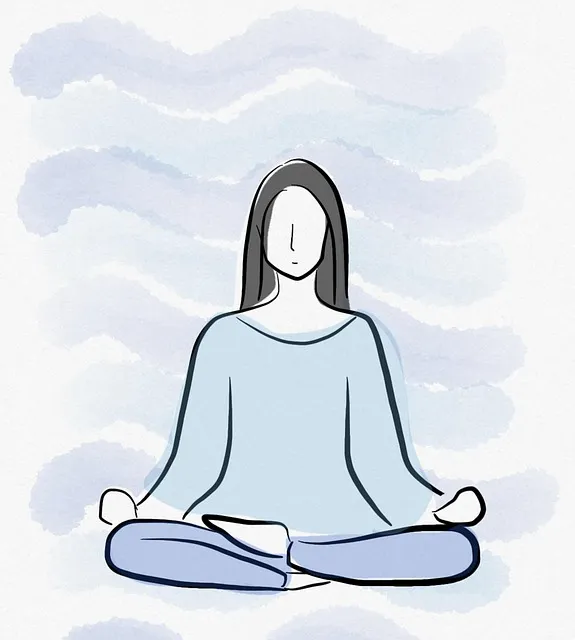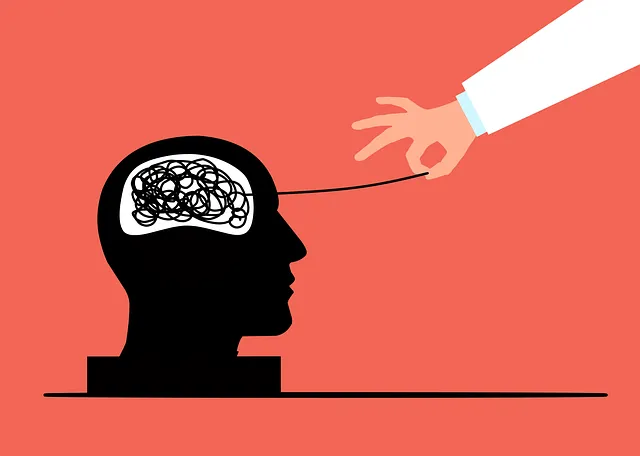The Kaiser Permanente mental health center in Northglenn prioritizes stress management through personalized strategies addressing triggers like work-life balance, financial pressures, and relationship issues. They offer mindfulness practices, meditation, cognitive behavioral therapy (CBT), physical activity, and education programs for comprehensive stress reduction. The center advocates a holistic approach, promoting healthy lifestyles including balanced diets, adequate sleep, and strong social connections to enhance mental well-being.
Stress reduction is a vital aspect of maintaining overall well-being, and at Kaiser Permanente Mental Health Center Northglenn, we offer comprehensive strategies to manage it effectively. This article explores diverse methods to combat stress, from mindfulness practices like meditation to evidence-based therapies like Cognitive Behavioral Therapy (CBT). We also delve into the role of physical activity, healthy lifestyle choices, and their impact on stress levels. Discover practical tips tailored by experts at Kaiser Permanente Northglenn to promote a calmer, more balanced life.
- Understanding Stress: Its Impact and Common Triggers at Kaiser Permanente Mental Health Center Northglenn
- Mindfulness and Meditation Techniques for Daily Stress Relief
- Physical Activity and Exercise as Powerful Tools Against Stress
- Cognitive Behavioral Therapy (CBT): A Structured Approach to Managing Stress
- Healthy Lifestyle Choices: Nutrition, Sleep, and Social Connections for Reduced Stress Levels
Understanding Stress: Its Impact and Common Triggers at Kaiser Permanente Mental Health Center Northglenn

At Kaiser Permanente Mental Health Center Northglenn, understanding stress is a key pillar in our approach to patient care. Stress is a natural response to demanding situations, but chronic or prolonged stress can significantly impact mental and physical health. It may manifest through various symptoms such as anxiety, irritability, difficulty concentrating, and even physical ailments like elevated blood pressure. Our healthcare professionals are trained in recognizing these signs and providing personalized strategies for stress reduction.
Common triggers of stress include work-life imbalances, financial pressures, relationship issues, and major life changes. At Kaiser Permanente, we believe that building resilience is crucial to managing stress effectively. Through our comprehensive services, which include individual therapy, group support sessions, and mindfulness workshops, we empower individuals to develop coping mechanisms that enhance their overall well-being. Additionally, cultural competency training for healthcare providers ensures a sensitive and inclusive environment where every patient feels understood and supported on their journey to improved mental health. This holistic approach, combined with confidence-boosting techniques, equips our clients with the tools needed to navigate stressful situations with greater ease and resilience.
Mindfulness and Meditation Techniques for Daily Stress Relief

Mindfulness and meditation have emerged as powerful tools for managing daily stress, offered by many Kaiser Permanente mental health centers, including Northglenn. These techniques encourage individuals to focus on the present moment, cultivating awareness of their thoughts, feelings, and bodily sensations without judgment. By regularly practicing mindfulness, one can develop inner strength and enhanced emotional resilience, effectively reducing stress levels and promoting overall well-being.
Meditation practices vary widely, from guided visualizations to simple breath awareness exercises. Incorporating just a few minutes of meditation into daily routines can significantly contribute to stress reduction methods. It helps calm the mind, lower anxiety, and improve focus. The benefits extend beyond mental health, as regular practice has been linked to better physical health, including lower blood pressure and improved sleep quality.
Physical Activity and Exercise as Powerful Tools Against Stress

Physical activity and exercise are renowned as potent tools in the battle against stress, offering a natural and effective way to enhance mental wellness. The Kaiser Permanente mental health center Northglenn advocates for regular movement as a crucial component of burnout prevention strategies for healthcare providers. Engaging in physical exercises releases endorphins, often referred to as ‘feel-good’ hormones, which can alleviate tension and promote a sense of calm. Activities like walking, running, or even simple stretching routines can help reduce the body’s stress response, providing an immediate and accessible way to manage anxiety relief.
Moreover, incorporating exercise into daily routines can serve as a healthy distraction from stressful thoughts, allowing individuals to focus on their bodies’ physical sensations. This mindful practice is especially beneficial for healthcare professionals who often bear significant emotional burdens. Mental wellness coaching programs development has recognized the value of exercise in fostering resilience and improving overall mental health, aligning with the comprehensive approach offered by Kaiser Permanente’s Northglenn center.
Cognitive Behavioral Therapy (CBT): A Structured Approach to Managing Stress

Cognitive Behavioral Therapy (CBT) is a structured approach to managing stress that focuses on identifying and changing negative thought patterns and behaviors. Offered by mental health professionals, including those at Kaiser Permanente mental health center Northglenn, CBT helps individuals understand how their thoughts influence their feelings and actions. Through this process, CBT enables people to develop coping strategies for dealing with stressful situations.
This evidence-based therapy is designed to address a wide range of stress-related issues and mental health concerns. By participating in CBT sessions, individuals can learn effective mental wellness journaling exercises guidance and gain insights into their mental illness stigma reduction efforts. Moreover, the structured nature of CBT allows for personalized Mental Health Education Programs Design tailored to meet each person’s unique needs, fostering long-term stress management.
Healthy Lifestyle Choices: Nutrition, Sleep, and Social Connections for Reduced Stress Levels

Maintaining a healthy lifestyle is a powerful tool for stress reduction, as backed by experts from Kaiser Permanente mental health center Northglenn. Proper nutrition plays a significant role in managing stress; a balanced diet rich in fruits, vegetables, whole grains, and lean proteins can improve overall well-being. Adequate sleep is another crucial component; prioritizing quality rest helps regulate hormones that influence stress responses. Furthermore, fostering strong social connections through meaningful interactions and building empathy can significantly contribute to mental health, as part of Mental Illness Stigma Reduction Efforts. Engaging in conversations, supporting friends, and connecting with the community are simple yet effective Empathy Building Strategies.
In addition, staying active through regular exercise releases endorphins that promote relaxation and positive moods. These healthy habits not only help in managing stress but also contribute to a comprehensive Mental Health Policy Analysis and Advocacy approach, encouraging individuals to prioritize their mental well-being.
Stress is a ubiquitous part of modern life, but with the right tools and mindset, it can be effectively managed. As seen at the Kaiser Permanente Mental Health Center Northglenn, integrating practices like mindfulness, physical activity, CBT, and healthy lifestyle choices can significantly reduce stress levels. By understanding common triggers and adopting evidence-based techniques, individuals can navigate life’s challenges more resiliently. These strategies not only enhance overall well-being but also empower individuals to lead happier, more balanced lives.






